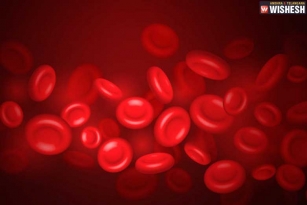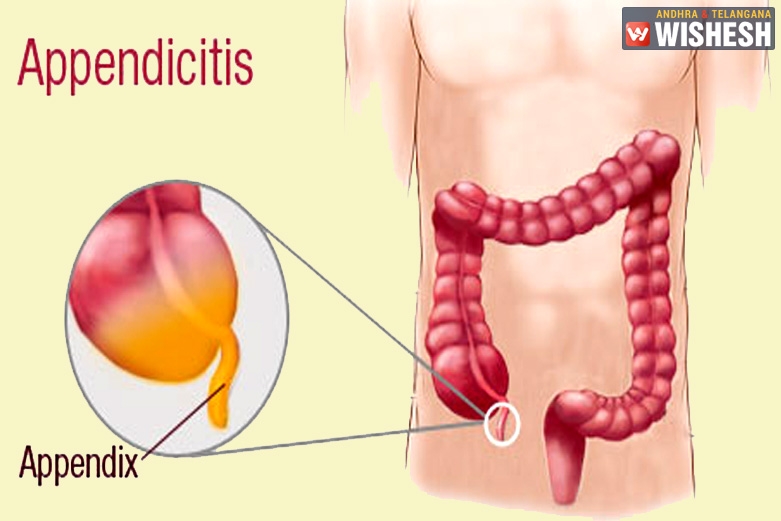
Appendicitis - A Digestive Disorder:- The digestive system is essential to helping your body break down food so that it can adequately retrieve nutrients and vitamins, while also getting rid of waste. It is composed of the following organs - mouth, esophagus, liver, stomach, gallbladder, small and large intestines, pancreas, anus and rectum.
You may experience uncomfortable symptoms, when something is disturbed within the digestive system. Some problems are serious enough to warrant a visit to a gastroenterologist, a specialist that works with digestive issues. Others are simply related to lifestyle habits.
Common digestive problems include heartburn/GERD, IBD, and IBS. Symptoms may include bloating, diarrhea, gas, stomach pain, and stomach cramps. Treatment includes a combination of medication and lifestyle changes.
Here, we will discuss about the common digestive disorder, that is Appendicitis.
- What Is Appendicitis?
An inflammation of the appendix is generally termed as appendicitis. In this condition, a 3 1/2-inch-long tube of tissue extends from the large intestine. Appendicitis is a medical emergency that almost always requires prompt surgery to remove the appendix. If it is left untreated, an inflamed appendix will finally burst, or perforate, spilling infectious materials into the abdominal cavity. This can lead a serious inflammation of the abdominal cavity’s lining, the to peritonitis. If it is not treated quickly with strong antibiotics, the infection can be fatal.
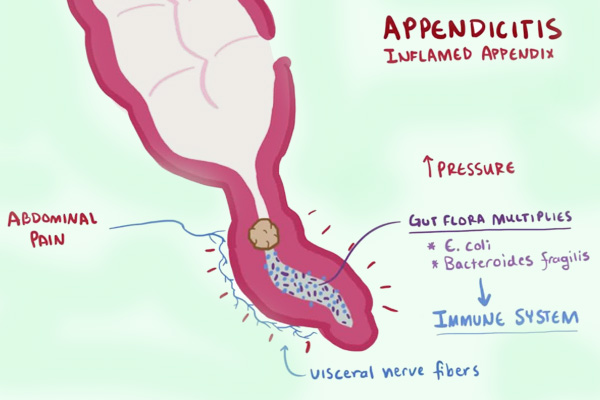
Sometimes, outside the inflamed appendix, a pus-filled abscess forms. The scar tissue then “walls off” the appendix from the rest of the abdomen, preventing infection from spreading. An abscessed appendix can explode or penetrate, and cause peritonitis. Almost all cases of appendicitis are treated as emergencies, requiring surgery, for this reason.
- What Causes Appendicitis?
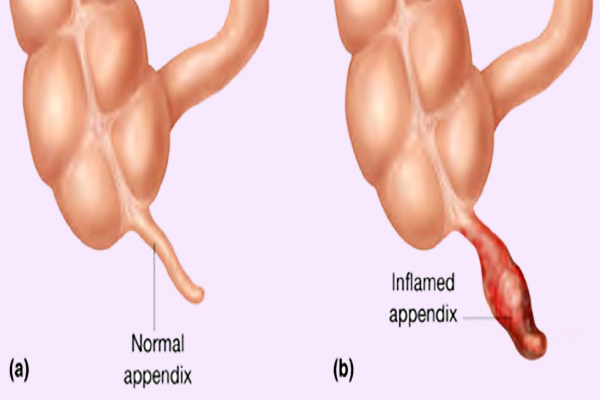
Appendicitis occurs when the appendix becomes blocked, often by stool, a foreign body, or cancer. The infection may also occur from blockage, since in response to any infection in the body, the appendix can swell.
- Symptoms of Appendicitis?
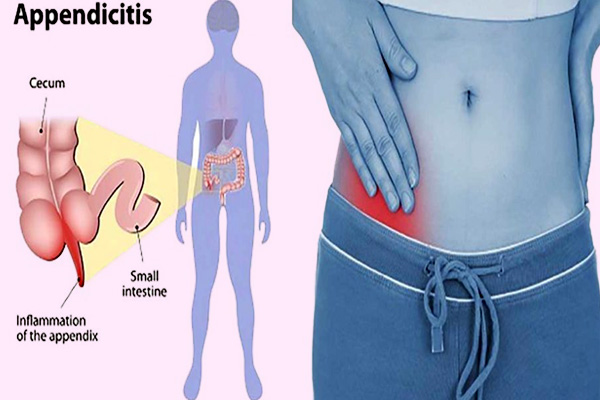
The classic symptoms of appendicitis include:
- Dull pain near the navel or the upper abdomen that becomes sharp as it moves to the lower right abdomen. This is usually the first sign.
- Loss of appetite
Nausea and/or vomiting soon after abdominal pain begins
- Abdominal swelling
- Fever of 99-102 degrees Fahrenheit
- Inability to pass gas
Other symptoms of appendicitis include :
- Dull or sharp pain anywhere in the upper or lower abdomen, back, or rectum
- Painful urination and difficulty passing urine
- Vomiting that precedes the abdominal pain
- Severe cramps
- Constipation or diarrhea with gas
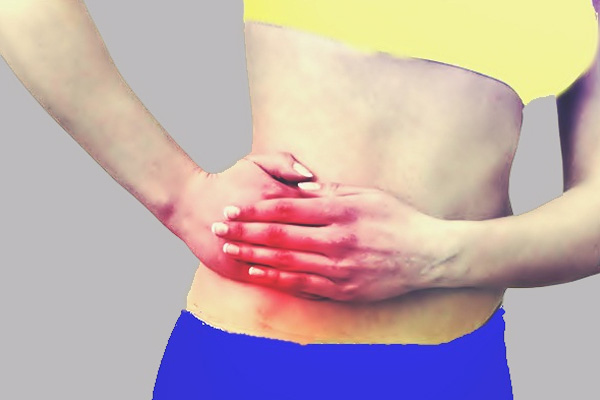
If you have any of the mentioned symptoms, seek medical attention immediately, because timely diagnosis and treatment is very important. An inflamed appendix can rupture if you eat, drink, or use any pain remedies, antacids, laxatives, or heating pads.
- How Is Appendicitis Diagnosed?
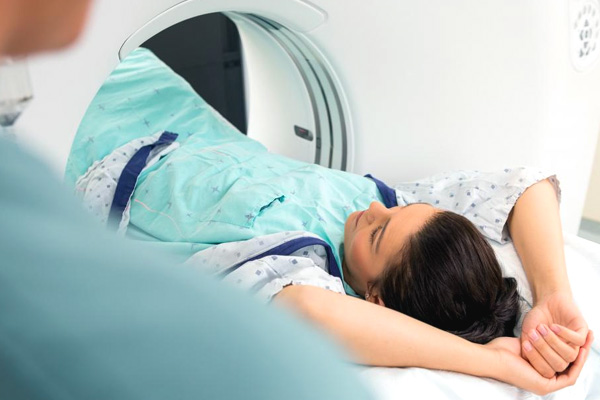
Diagnosing appendicitis can be tricky. Symptoms of appendicitis are frequently vague or extremely similar to other ailments, including gallbladder problems, bladder or urinary tract infection, Crohn’s disease, gastritis, intestinal infection, and ovary problems.
The following tests are usually used to help make the diagnosis:
- Abdominal exam to detect inflammation
- Urine test to rule out a urinary tract infection
- Rectal exam
- Blood test to see if your body is fighting infection
- CT scans and/or ultrasound
- How Is Appendicitis Treated?
Surgery to remove the appendix, which is called an appendectomy, is the standard treatment for almost all cases of appendicitis.
Doctors tend to err on the side of safety and quickly remove the appendix to avoid its rupture, generally, if appendicitis is suspected. If the appendix has formed an abscess, you may have two procedures: one to drain the abscess of pus and fluid, and a later one to remove the appendix. However, research showed that in some cases, treatment of minor appendicitis with antibiotics may eliminate the need for surgery.
- Appendectomy: What to Expect
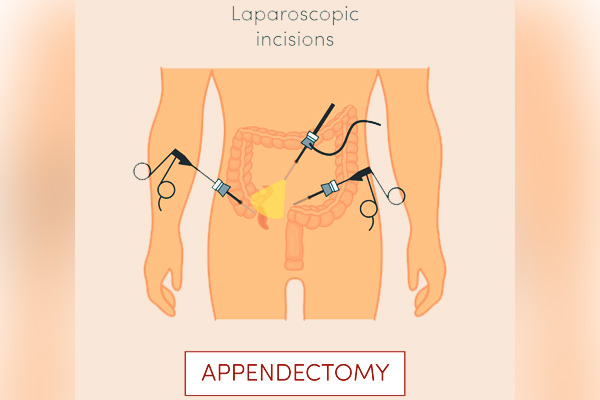
Antibiotics are given before an appendectomy to fight possible peritonitis. General anesthesia is usually given, and the appendix is removed through a 4-inch incision or by laparoscopy. The abdomen is also irrigated and drained of pus, if you have peritonitis.
Within 12 hours of surgery you may get up and move around. You can usually return to normal activities in two to three weeks. The incision is smaller and recovery is faster, if surgery is done with a laparoscope.
After an appendectomy, call your doctor if you have:
- Uncontrolled vomiting
- Increased pain in your abdomen
- Dizziness/feelings of faintness
- Blood in your vomit or urine
- Increased pain and redness in your incision
- Fever
- Pus in the wound
- Can Appendicitis Be Prevented?
There is no way to prevent appendicitis. However, people who eat foods high in fiber, such as fresh fruits and vegetables, the appendicitis may be less common.
SUPRAJA






